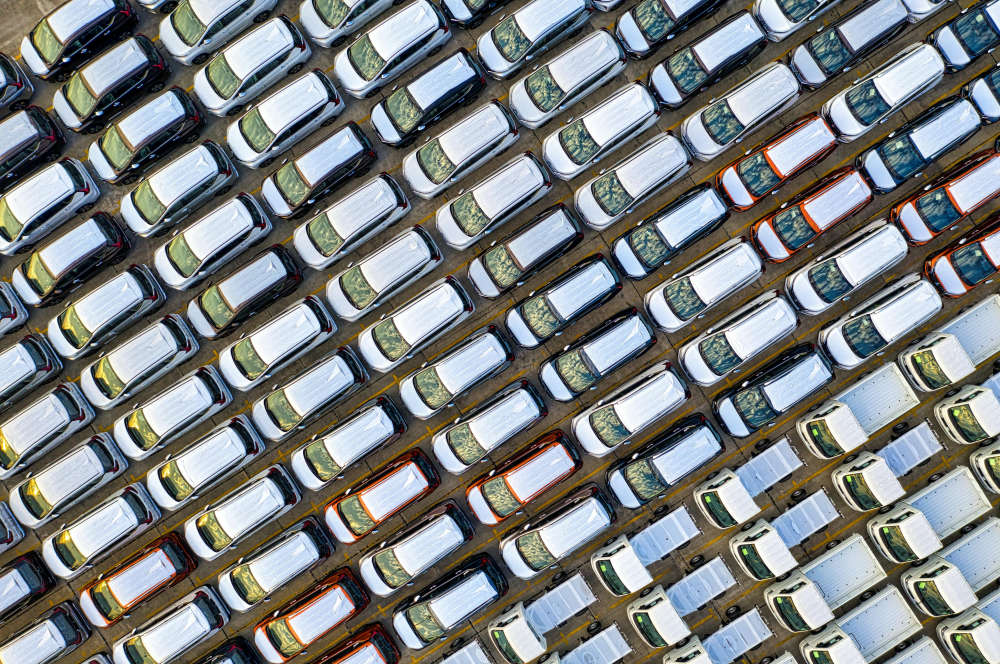The Future of Business Transport: Staying Competitive with Smart Solutions
The future of business transport is rapidly evolving. As companies look to streamline operations and maintain a competitive edge, the focus on smart transport solutions is more crucial than ever. These solutions help businesses monitor and optimise their vehicle fleets, improving efficiency and reducing costs.
Why Smart Solutions are Essential for Fleet Management
Managing a fleet is a complex task, especially when multiple vehicle types are involved. It requires continuous monitoring to ensure that every vehicle is performing at its best. Smart solutions, such as fleet tracking systems, provide real-time data that helps businesses manage their fleets more effectively. This includes tracking vehicle locations, monitoring driver behaviour, and ensuring compliance with regulations.
Fleet management technology allows companies to monitor and improve driver behaviour in real-time. This includes:
● Reducing harsh acceleration and braking
● Limiting excessive idling
● Encouraging adherence to speed limits
By coaching drivers to adopt more fuel-efficient driving habits, fleets can see substantial reductions in fuel consumption.
This not only lowers operating costs but also contributes to sustainability goals. For businesses running mixed fleets, smart solutions offer a way to manage everything from small cars to large HGVs under a single platform, providing valuable insights across the entire operation.
The Role of Fleet Tracking in Optimising Performance
Fleet tracking plays a crucial role in the efficient management of vehicles. A fleet tracking system enables businesses to know exactly where their vehicles are, how fast they are travelling, and how they are being driven. This kind of transparency is invaluable when it comes to ensuring that fleet operations run smoothly and safely.
Tracking systems can also highlight areas for improvement, such as identifying routes that lead to excessive fuel consumption or spotting drivers who may need additional training. By improving routing and reducing idle time, fleet tracking systems help businesses cut down on unnecessary emissions. Fleet tracking systems from FleetGO are particularly useful for companies managing mixed fleets. Whether you’re tracking vans, cars, or HGVs, these systems provide a comprehensive view of your fleet’s performance, helping you to make informed decisions and enhance operational efficiency.
Enhancing Compliance and Safety with Tachographs
When it comes to HGVs, tachographs play an essential role in ensuring compliance with regulations. These devices monitor driving time, speed, and distance, helping businesses meet legal requirements and promote safe driving. By using smart tachograph solutions, companies can ensure that drivers stay within legal limits and avoid costly fines or penalties.
Tachographs are mandatory for HGVs in the UK and across Europe, but their use can go beyond compliance. Fleet managers can analyse the data from tachographs to spot patterns of risky behaviour, such as driving for excessive periods without taking breaks. By using this data, businesses can take corrective action before incidents occur, improving both driver safety and the overall safety of the fleet.
FleetGO’s smart tachograph integration is particularly beneficial for companies with a significant number of HGVs. By combining tachograph data with fleet tracking insights, businesses can maintain a full picture of their fleet’s performance, ensuring compliance while maximising efficiency.
Reducing Operational Costs through Smart Maintenance
One of the most significant benefits of using smart transport solutions is the ability to reduce operational costs, particularly when it comes to maintenance. Predictive maintenance, enabled by fleet tracking systems, helps businesses stay ahead of potential problems by identifying issues before they lead to breakdowns. This is particularly valuable for fleets with a mix of vehicles, where maintenance needs can vary greatly.
For example, regular cars and vans might need routine checks, while HGVs may have stricter maintenance requirements due to the nature of their operations. Fleet tracking systems allow managers to schedule maintenance based on the actual usage and condition of the vehicles, rather than following a fixed schedule.
This approach can extend the life of the fleet and prevent costly repairs.
This means fewer disruptions to operations and less lost revenue due to vehicles being off the road. For businesses managing large or mixed fleets, this kind of efficiency gain can have a profound impact on overall profitability.
Improving Driver Behaviour with Real-Time Data
Driver behaviour plays a significant role in fleet management, influencing both safety and cost-efficiency. Poor driving habits, such as speeding, harsh braking, or excessive idling, can lead to higher fuel consumption, increased wear and tear, and even accidents. Smart fleet tracking systems provide businesses with real-time data on driver behaviour, enabling managers to address issues before they escalate.
Real-time data helps identify patterns of risky driving. For instance, if a driver consistently exceeds speed limits, fleet managers can intervene early, offering additional training or adjusting schedules to reduce pressure on drivers. This proactive approach not only improves safety but also saves money. Rising fuel costs are considered in driver behaviour management too, with a 33% increase in businesses implementing new driver behaviour programmes in the aim of managing rising fuels costs.
In addition, improving driving habits leads to lower fuel consumption. The Energy Saving Trust estimates that safe and efficient driving can reduce fuel use by 10%. When applied across a large or mixed fleet, these savings can be substantial. With the data provided by fleet tracking systems, businesses can reward good driving practices, creating a culture of safety and efficiency throughout the fleet.
Sustainability Through Smart Fleet Solutions
Sustainability is becoming a key focus for businesses of all sizes. Reducing carbon emissions and minimising the environmental impact of operations is not only good for the planet but also increasingly necessary for regulatory compliance. Smart fleet solutions play a vital role in helping businesses achieve their sustainability goals.
One of the primary ways that fleet tracking systems contribute to sustainability is through fuel optimisation. As mentioned earlier, tracking driver behaviour can lead to significant fuel savings, which directly reduces the carbon footprint of the fleet. The EU has set CO2 emission performance standards for new passenger cars and vans. From 2035 onwards, the EU fleet-wide CO2 emission target for both cars and vans is 0 g CO2/km, corresponding to a 100% reduction.
Additionally, smart fleet systems help businesses plan more efficient routes. By using GPS data to avoid traffic and reduce idle time, companies can minimise unnecessary driving, further lowering emissions. For businesses with large fleets, including both cars and HGVs, this can make a significant difference.






